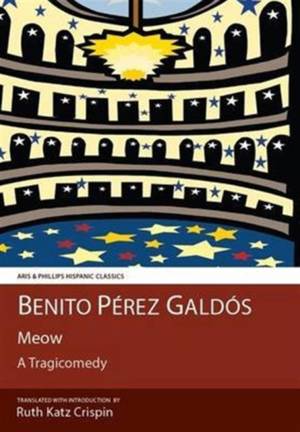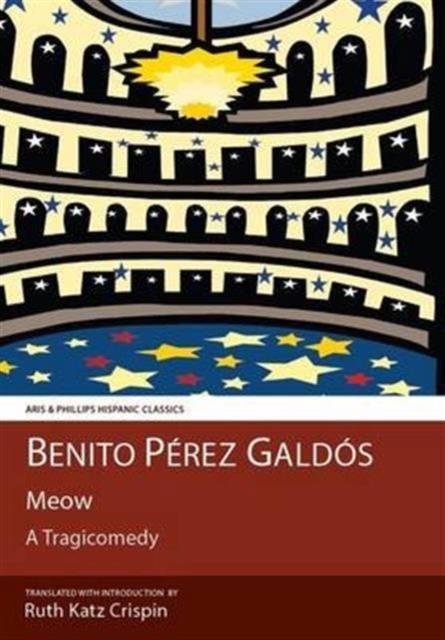
- Retrait gratuit dans votre magasin Club
- 7.000.000 titres dans notre catalogue
- Payer en toute sécurité
- Toujours un magasin près de chez vous
- Retrait gratuit dans votre magasin Club
- 7.000.0000 titres dans notre catalogue
- Payer en toute sécurité
- Toujours un magasin près de chez vous
Description
Benito Perez Galdos' finely-crafted novel, Meow, is a tragi-comedy. It is the story of a middle-aged, middle class middle-manager who does not know how to pull the strings that could get him reinstated to his job in the Spain's civil service, from which he has been laid off with only two months to go for him to be eligible for his pension, and save his family from certain poverty. Villaamil is obsessed with the work he used to do and needs still to be doing, not only because his family acutely needs his pension but also because he is particularly good at what he does: but he is only rebuffed and ridiculed. Obsessively, compulsively, he returns to his former workplace; buttonholes men whose careers he had once jumpstarted but whose gratitude he does not seem to have retained; is mocked and rejected time and again. Ridicule - and its necessary obverse, egotism - is a central theme to a number of sub-plots concerning the complex intra-familial relationships of various members of the Villaamil family: the ridicule itself functioning as a mask for feelings of insecurity and inferiority.
Three subordinate characters introduce the reader to the"meow" motif in its first, ironic incarnation: the women in the Villaamil household whose comical facial resemblance to a cat inspired their nickname. But the epithet is later appropriated by Ramon himself when he makes of its letters a series of progressively darker acronyms that express his growing desperation and alienation.
Galdos'indictment of human frailty, sometimes judgmental, sometimes compassionate, is acutely, psychologically penetrating; and thus his characters are splendidly realized, rounded and recognizable in the modern world.
Spécifications
Parties prenantes
- Auteur(s) :
- Traducteur(s):
- Editeur:
Contenu
- Nombre de pages :
- 536
- Langue:
- Anglais
- Collection :
Caractéristiques
- EAN:
- 9781908343796
- Date de parution :
- 30-06-14
- Format:
- Livre relié
- Format numérique:
- Genaaid
- Dimensions :
- 150 mm x 213 mm
- Poids :
- 884 g

Les avis
Nous publions uniquement les avis qui respectent les conditions requises. Consultez nos conditions pour les avis.






